POTS and Anxiety: Similarity In Symptoms, Differences & More
August 27, 2025

- POTS and anxiety are separate conditions, but you can have both at the same time.
- People with POTS can be misdiagnosed with anxiety before receiving a clinical POTS diagnosis.
- POTS and anxiety have some common symptoms, including fast heart rate, shortness of breath, sleep problems, brain fog, and headache.
- Working with healthcare professionals, and making lifestyle adjustments such as exercising, maintaining blood pressure, using compression garments, and employing calming strategies are key steps in the management of these chronic conditions.
- Human Health is a free app that can make managing POTS & anxiety easier.
Anxiety and Postural Orthostatic Tachycardia Syndrome (POTS) are both chronic health conditions that can affect blood pressure, heart rate, sleep, energy levels, and the gut. Some people may be impacted by both of these conditions—so, how are they related, and what's the difference between them?
In this post, we'll dive deeper into these topics, as well as some tips for how to manage both POTS and anxiety.
Overview of POTS and Anxiety
The autonomic nervous system acts on the heart and blood vessels to ensure blood is circulating effectively, so that enough blood reaches important organs like the brain. In POTS, this system doesn't work properly to adjust the blood pressure when going from sitting or lying down to standing, a phenomenon called orthostatic hypotension.
If you’d like to learn more about the distinctions and overlapping symptoms, check out our detailed post on Orthostatic Hypotension vs POTS
Anxiety disorders are primarily characterized by excessive worry, and can have accompanying physical symptoms related to increased psychological stress.
Overlapping Symptoms
Because both conditions affect the autonomic nervous system, there are symptoms that occur in both POTS and anxiety.
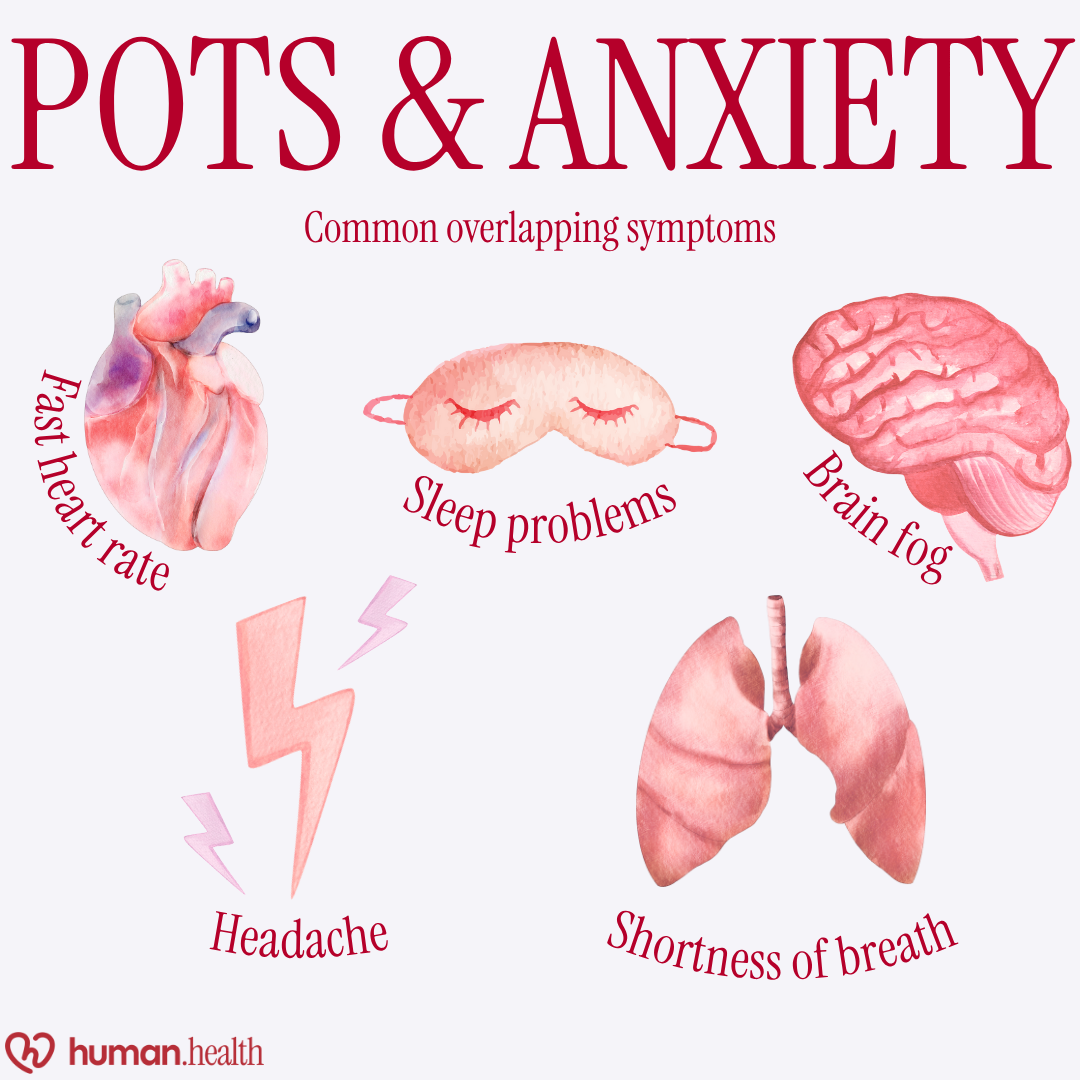
Fast heart rate
Since the autonomic nervous system is activated by stress, heart rate and blood pressure may increase when anxiety is high. An increase in heart rate may lead to anxiety and chest pain.
With POTS, the heart tries to compensate for the ineffective blood flow with changes in posture by beating faster (also known as tachycardia).
Shortness of breath
Part of the autonomic nervous system's response to anxiety is increasing the rate of breathing, to provide more oxygen to the muscles we might need to fight or run away. Breathing faster can lead to shallow breaths, which might make you feel like you're not getting enough air, a common experience of breath anxiety.
In POTS, decreased blood supply to the brain triggering the autonomic nervous system to adjust the breathing and heart rates could be related to feeling short of breath.
Brain fog
With both anxiety and POTS, patients report cognitive difficulties, such as problems with memory and concentration. The exact mechanisms for why these challenges occur with these conditions is not yet known.
Stress hormones activated when the brain thinks the body is under threat could impact the ability to think clearly and remember things. Feeling overwhelmed or preoccupied with anxious thoughts could also contribute to this.
For people with POTS, brain fog could be related to ineffective blood circulation, affecting the brain's ability to function properly. Understanding the different types of POTS can also help explain why some individuals experience more severe cognitive issues than others. Dysfunction of the nervous system could also play a part.
Sleep problems
People with anxiety often have problems with sleep, including insomnia, which encompasses difficulties falling asleep, staying asleep, and having sleep that feels restful.
Sleep problems and fatigue are also commonly reported by people with POTS, as well as in conditions like fibromyalgia numbness, where fatigue and nerve-related symptoms often appear together.
{{inline-cta-1}}
Headache
A specific type of headache is often reported by people with POTS, known as a "coat hanger" headache due to the distribution of pain along the back of the head, neck, and shoulders. It usually occurs with episodes of orthostatic hypotension.
Feelings of anxiety and stress can create tension in muscles of the head and neck, which may contribute to the occurrence of headaches.
Keeping track of when these headaches happen, along with possible triggers like stress or changes in posture, is easier with our Headache Tracker, which helps you spot patterns and share more accurate information with your care team.
Can I Have Both POTS and Anxiety?
Yes, you can be diagnosed with both POTS and anxiety. In a small 2024 study out of the Nemours Children’s Hospital in Orlando, Florida, 14% of POTS patients had an anxiety disorder.
It's also common for people with POTS to be misdiagnosed with a mental health condition like anxiety. This may be due to the large overlap between the conditions, as we've outlined above.
A large online survey published in 2019 found that 77% of participants were told their symptoms may be originating from a psychiatric or psychological problem before their POTS diagnosis.
Not all people who experience feelings of anxiety have an anxiety disorder. In particular, people with POTS seem to experience worry or fear specifically related to their POTS symptoms and complications.
Having an increased sense of awareness about internal body functions like heart rate, and stress about these symptoms, could contribute to feelings of anxiety.
Managing POTS and Anxiety
POTS and feelings of anxiety can both have major impacts on a person's day-to-day life. There is no cure for either condition, and they can be complicated to manage. A 2024 study which analyzed data from 322 patients found that patients diagnosed with POTS and anxiety had more challenges with their POTS treatment.
However, strategies and treatments do exist to help you — including several natural remedies for POTS that can support symptom relief alongside professional care.”
{{pro-tip-1}}
Working with healthcare team
These conditions are complex, and a range of healthcare professionals are often involved in their treatment. This may include a primary care physician, cardiologists, psychologists, pharmacists, physiotherapists, occupational therapists, dieticians, nurses, and more.
Finding a healthcare team you can trust to have your best interests at heart can be an important step towards reaching your health goals.
Using a health tracking tool, like Human Health, could help make communicating with practitioners easier for you, when you're overwhelmed by changes in your symptoms and treatments.
Managing your mental health
Having a chronic health condition can take a toll on more than your body. It's important to make sure your mental health is taken care of, too.
People with POTS commonly experience feelings of anxiety and depression as a result of their physical illness. If you've experienced these thoughts too, reading quotes from other people with "anxiety" or "depression" might help you feel less alone.
Trained therapists and psychologists are masters at helping those who are struggling with these thoughts, and providing them with strategies to cope with their condition.
Lifestyle adjustments to manage POTS & Anxiety
Making some small changes every day could help to improve how you feel.

Maintaining blood pressure
For patients with POTS, managing their blood pressure is crucial. Doctors may recommend increasing water intake, as a higher blood volume can contribute to raising blood pressure.
Another strategy may be to increase sodium intake. In fact, doctors often recommend salt for people with POTS, since the body holds onto water in order to dilute the amount of sodium present, which helps increase blood volume and support better circulation. Alongside sodium and hydration, incorporating the right electrolytes for POTS can further support blood pressure stability and reduce POTS flare-ups.
Compression garments
Compression socks and abdominal binders may help reduce the amount of blood pooling, and improve circulation to vital organs.
Exercise
Exercising can cause an increase in 'happy hormones' in the brain, making you feel good, which could help reduce some of the unpleasant thoughts or feelings brought on by anxiety.
Some small studies have also suggested that regular exercise can improve POTS symptoms, such as heart rate changes and blood pooling.
Keeping anxiety at bay
Therapy can help with anxiety, but there are other strategies you can use in your daily life that might help ground you and ward off anxious thoughts.
For example, some people find music as anxiety relief, helping take their mind off their worries.
Human Can Help: Manage, Record & Track Your Health
It can be a daunting task to manage a chronic condition like POTS or anxiety alone. That's why the free Human Health app is your best friend when it comes to navigating your health journey.
Track symptoms, get Insights
Log symptoms that matter to you as they happen, like lightheadedness, anxiety, and fatigue. Human's smart Insights creates charts and reports highlighting how your health is changing over time. Sharing reports with your healthcare team can streamline appointments, empowering you to advocate for the healthcare you deserve.
Keep on top of your treatments
With Human's treatment tracker, you can tick treatments off as you complete them, making managing complex treatment plans easier. Gone are the days of missed doses—Human can remind you when treatments are due with personalized notifications.
Never miss an appointment
Add upcoming appointments and events into the Human app, and we'll take care of the rest. See the appointments you've added in the app, and get reminded when they're coming up.
All your files in one place
Upload important files like admission and discharge notes, test results, medical imaging results, or other files that matter to you. Our secure cloud storage keeps your health information safe, and you can access them at the touch of a button.
Support, when you need it
See what other people with your conditions are tracking, and access valuable educational resources. Human's Mindful moment feature can help ground you during episodes of stress or anxiety.
Navigating POTS & Anxiety doesn't have to be overwhelming. Let Human help you, get started for free today!
FAQs
What's the difference between POTS and anxiety?
POTS is a condition that primarily affects the heart and blood vessels, due to dysfunction of the autonomic nervous system which controls blood pressure.
Anxiety is a mental health condition that impacts our thoughts, feelings, and behaviors. The effects of anxiety on the brain can also trigger the autonomic nervous system, giving rise to physical symptoms.
Can POTS cause anxiety, or is it the other way around?
There is no clear evidence to show that POTS causes anxiety, or that people with anxiety are more likely to have POTS. However, people with POTS may experience anxiety.
How are POTS and anxiety diagnosed?
Both conditions are diagnosed by healthcare professionals.
For POTS, a drop in blood pressure upon standing of 30–40 beats per minute is required for diagnosis, along with the presence of certain symptoms like dizziness, vision changes, and feeling faint.
Anxiety is diagnosed based on the presence of certain symptoms, such as excessive worry, and how much they impact a person's day-to-day life.
References
1. UpToDate. Postural tachycardia syndrome. Available at: https://www.uptodate.com/contents/postural-tachycardia-syndrome
2. UpToDate. Generalized anxiety disorder in adults: Epidemiology, pathogenesis, clinical manifestations, course, assessment, and diagnosis. Available at: https://www.uptodate.com/contents/generalized-anxiety-disorder-in-adults-epidemiology-pathogenesis-clinical-manifestations-course-assessment-and-diagnosis
3. Kakavand B, Centner A, Centner S, Hasan S. The Prevalence of Anxiety and Depression in Children With Postural Orthostatic Tachycardia Syndrome (POTS): A Retrospective Study. Cureus. 2024 Sep 22;16(9):e69941. doi: 10.7759/cureus.69941. PMID: 39308845; PMCID: PMC11416870. Available at: https://pmc.ncbi.nlm.nih.gov/articles/PMC11416870
4. Shaw BH, Stiles LE, Bourne K, Green EA, Shibao CA, Okamoto LE, Garland EM, Gamboa A, Diedrich A, Raj V, Sheldon RS, Biaggioni I, Robertson D, Raj SR. The face of postural tachycardia syndrome - insights from a large cross-sectional online community-based survey. J Intern Med. 2019 Oct;286(4):438-448. doi: 10.1111/joim.12895. Epub 2019 Apr 16. PMID: 30861229; PMCID: PMC6790699. Available at: https://pmc.ncbi.nlm.nih.gov/articles/PMC6790699
5. Stallkamp Tidd SJ, Nowacki AS, Singh T, Hayburn A, Wilson R. Comorbid anxiety is associated with more changes in the Management of Postural Orthostatic Tachycardia Syndrome. Gen Hosp Psychiatry. 2024 Mar-Apr;87:1-6. doi: 10.1016/j.genhosppsych.2024.01.003. Epub 2024 Jan 11. PMID: 38224642. Available at: https://www.sciencedirect.com/science/article/pii/S0163834324000033
This is a div block with a Webflow interaction that will be triggered when the heading is in the view.

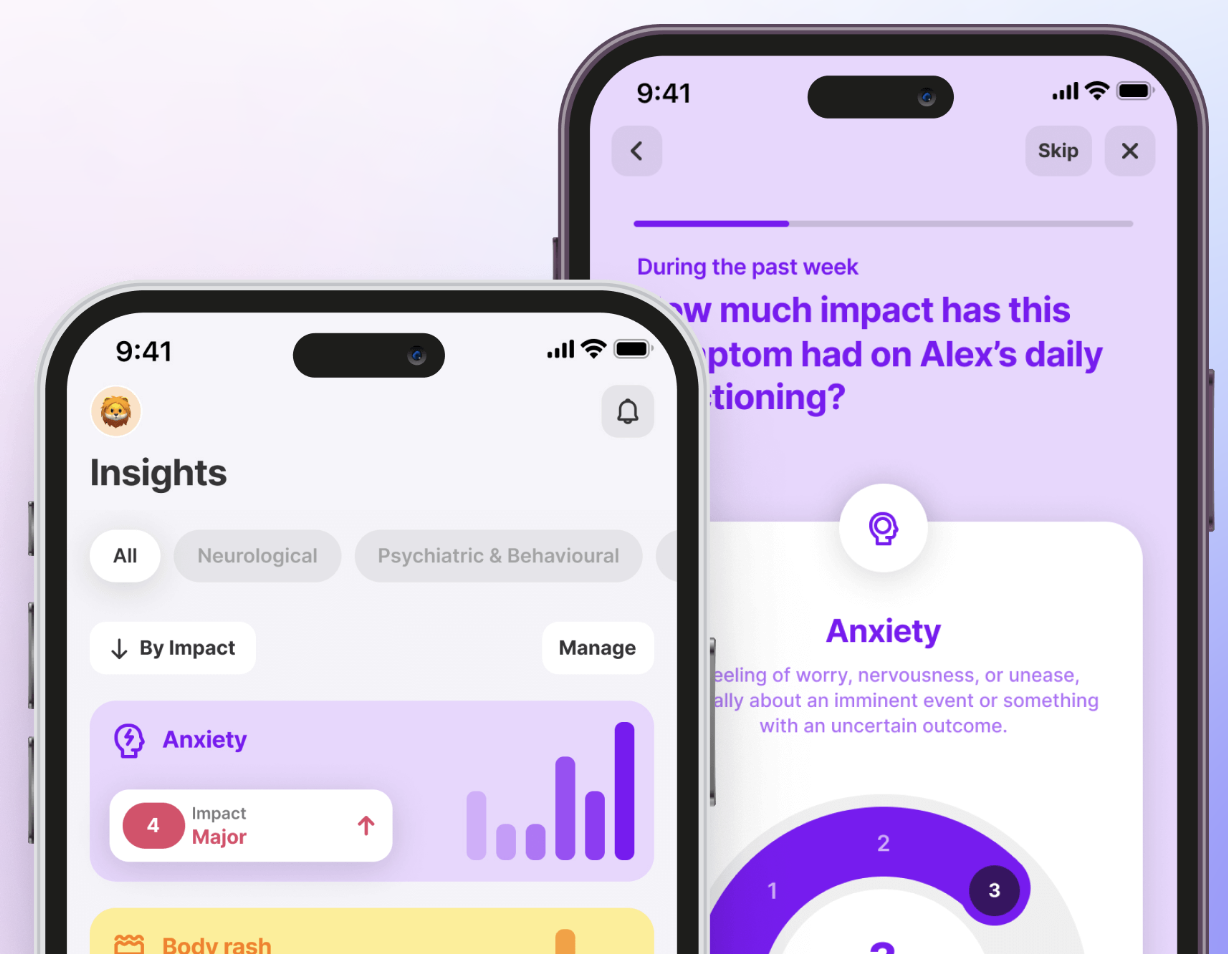
Take Control of Your Health
Log your symptoms, track flare ups, recognize patterns & more inside the Human Health app!







Pro tip
With Human, you can log POTS flares and anxiety symptoms together, making it easier to spot patterns and share clear insights with your doctor.

.jpg)

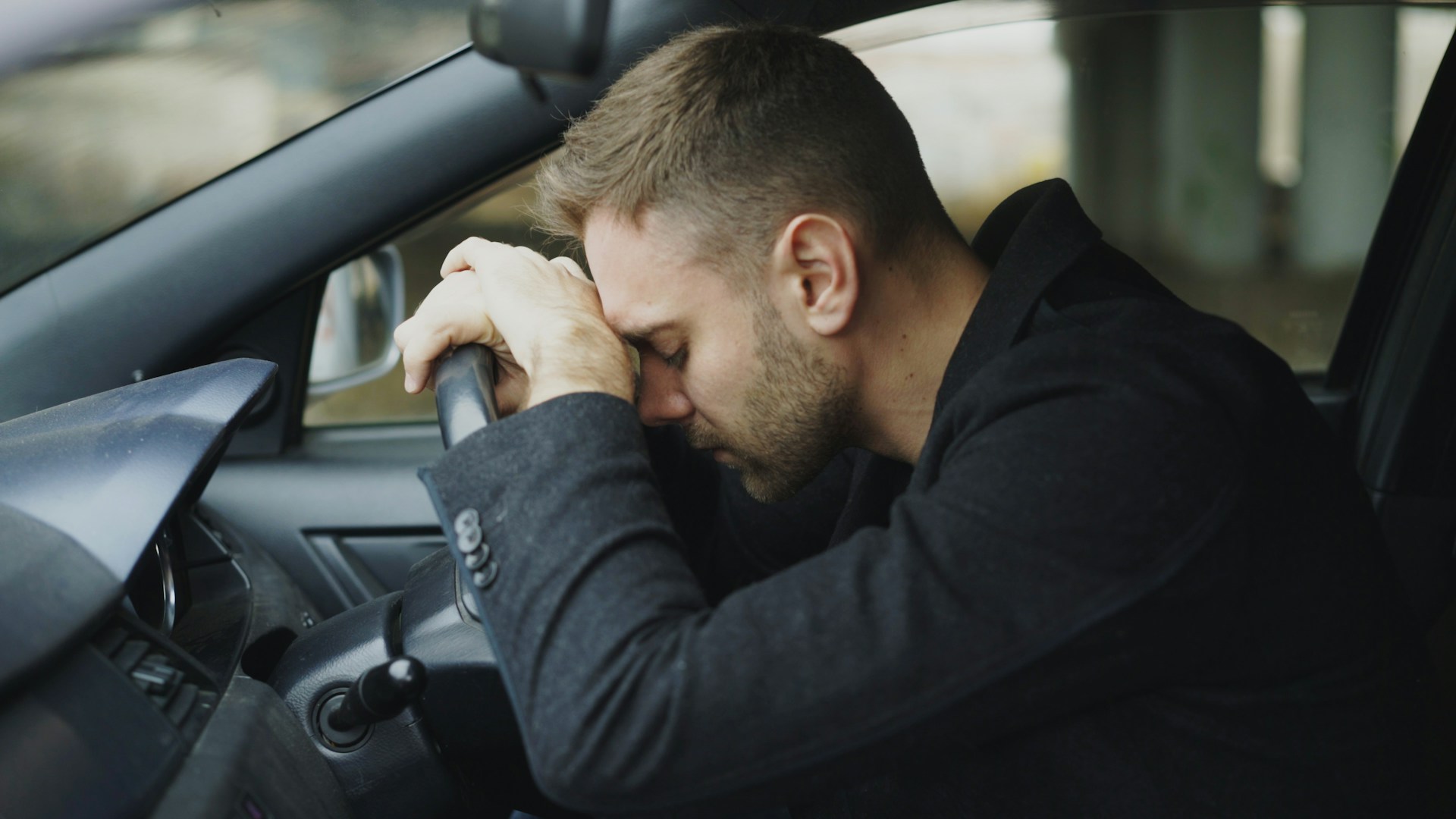
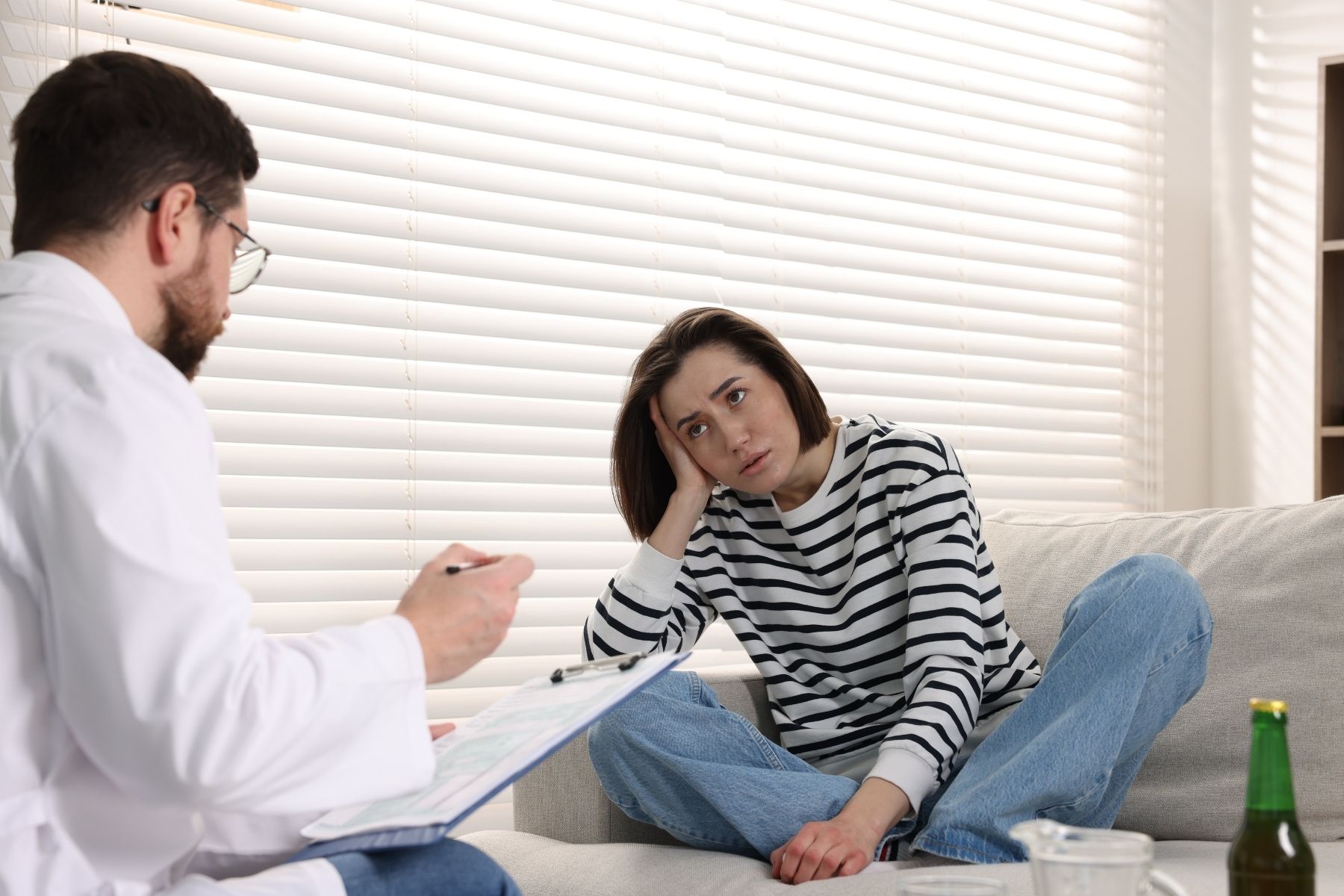
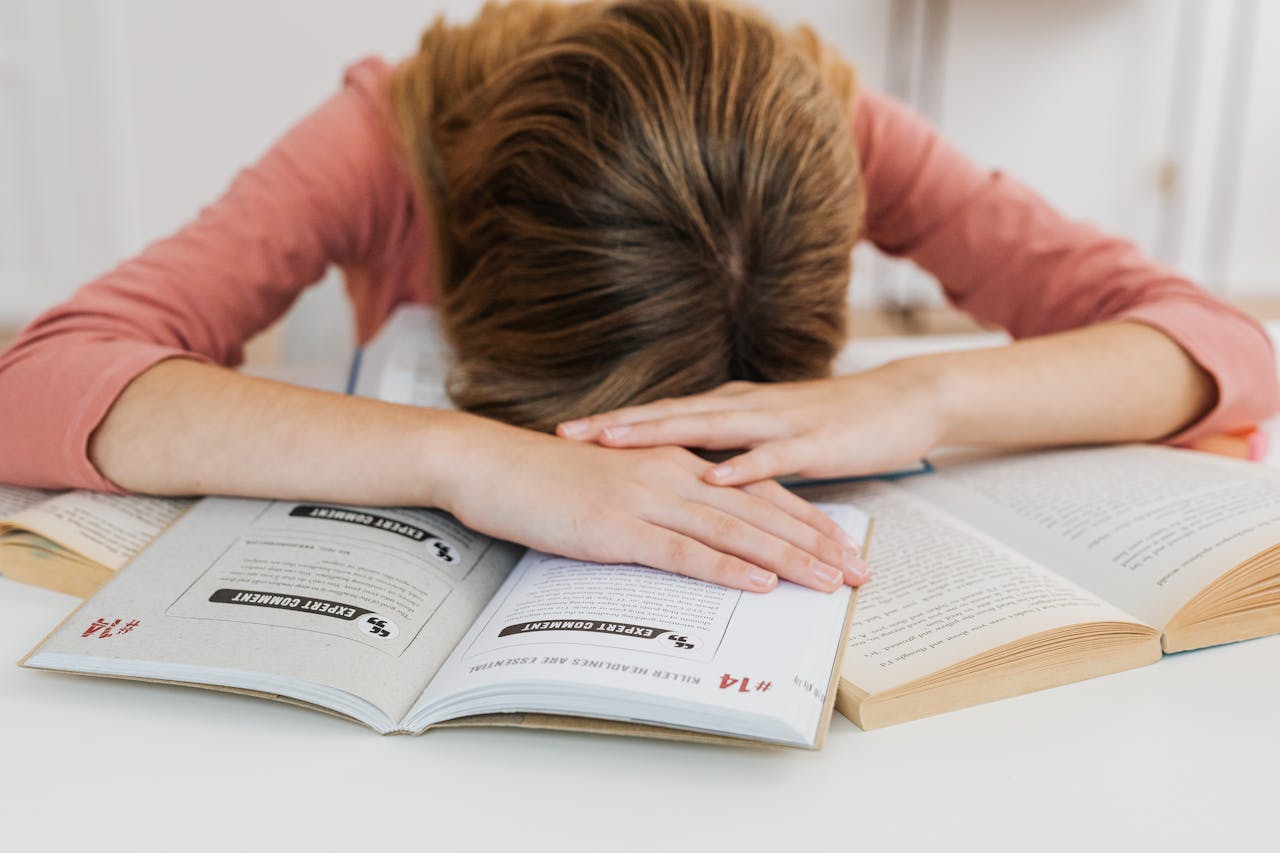
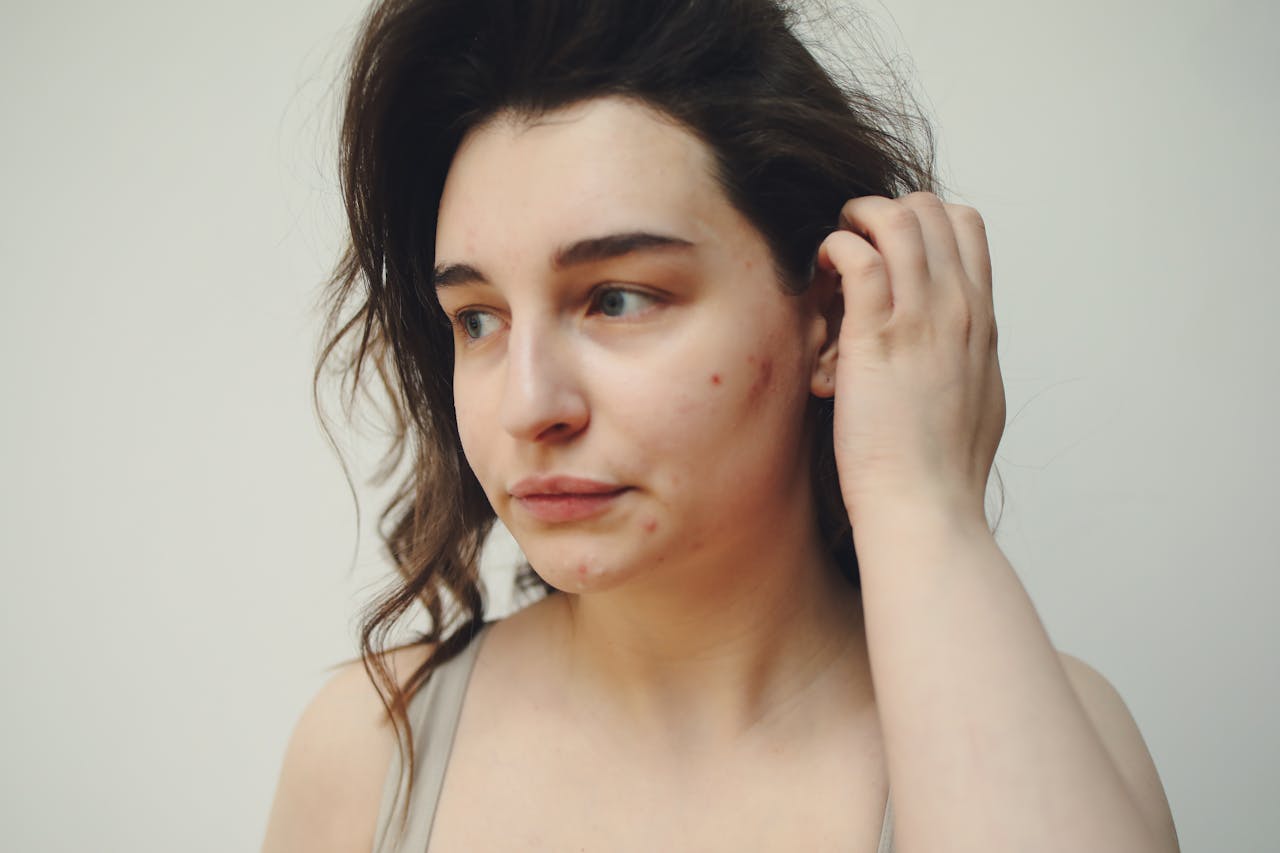
.png)

